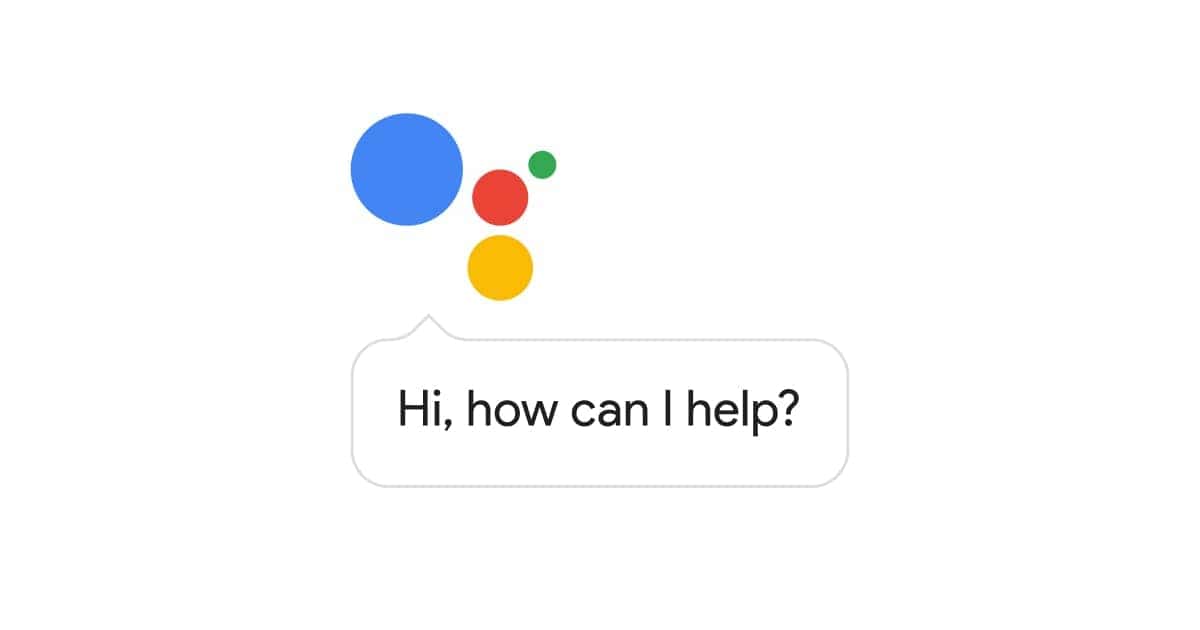Google Assistant finally will let you leave your shitty reality behind as AI takes over
Hey Google… being human sucks.

Just a heads up, if you buy something through our links, we may get a small share of the sale. It’s one of the ways we keep the lights on here. Click here for more.
Well played Google. Well played.
As this years’ Google I/O conference brought all the tech media to a collective climax, the highlights from the event started to flow onto social media like creme out of the back of a donut.
There is a huge Google News redesign that’ll change the paradigm of how we consume news (on the toilet in-between wipes). Google Maps is getting the augmented reality treatment because if we learned anything from Pokémon Go it’s that people have no trouble navigating their world through the lens of AR. There is a new version of Android called Android P hitting phones in beta right now. It looks like WebOS. Whatever. Surely it’ll be an improvement over the trash OS you are using right now. Right?
Then there is Google Assistant. Our very own Bryan Wolfe bullet points the highlights here but just like drinking a pitcher of beer with a straw, there is a deeper dive to be had. We first have to ask ourselves at what point do we want to draw the line between our human reality and one operated by artificial intelligence? I see no issue with AI as an assistant, as implied, but when AI begins to complete tasks for us we may become complacent with the mundane but necessary tasks that compose most of our waking life.

Image: Google
One of the exhibited features that really made the I/O crowd check their pants for moisture is that Google Assistant will be able to make phone calls for you, to make reservations and appointments. The interaction displayed for audiences was a bit janky, ending with a confused “Ok, gotcha thanks” from the AI that really didn’t flow with the conversation. While this is a great feature for people like me, who have social anxiety and hate making appointment calls, it’s not going to force me to leave the house if I don’t want to.
This is where AI goes from being an assistant to doing stuff for us, which has lasting sociological and psychological impacts that I doubt have been explored fully, besides in movies. Go ahead, make parallels to The Matrix. Why human when AI can do it all for us? It’s a slippery slope to having our lives managed by AI, instead of managing our own lives. While this is exciting for some of you, I’ll be over here still using Post-It notes and not being a slave to the whims of an ever-learning AI system.
No, I won’t be ordering food from Google Assistant. I’ll cook my own food thanks. The voice AI will apparently remember your favorite order, so you don’t even have to look at a menu. Or think. It’ll also chew your food for you, spit it into your mouth and all the while tracking your nutritional intake. Actually, that last bit might not be true.

Image: Android Police
We’re not even going to get into the data privacy implications of all of this. Google Assistant pretty much solidified its position on that, as it will now keep listening for eight seconds after you give it a command because it’s so exhausting to have to repeat the phrase “Hey Google”. I’m exhausted just writing that sentence.
As a routine-oriented person, I kind of like the Google Routines feature, except I also hate it. It’s a helpful feature that falls into the same trap of stealing our humanity through mundane tasks. Yes, I forgot to take my pills yesterday. No, I don’t always wake up at the same time every day. I have three different routes to work. Sure, Google Assistant can organize all this into a routine, but I’d hate to lose that train of thought honed from years of critical thinking.
And I will never say “pretty please” to a smart home device. Ever. Once we humanize the AI, it’ll be that much easier to hand over our humanity to it. Thankfully this is a feature that can be switched on or off. Fuck you very much Google.
Google’s Duplex is the culmination of handing over our daily interactions to AI. It is the technology at the center of the aforementioned reservation calling system. It is AI that will be able to make phone calls on your behalf because we’re all so keen on making phone calls these days. The AI itself sounds human, uses human pauses and says “uh” and “um” in conversation, just like you.
This is a short walk to us just sitting calmly in our living rooms while the AI holds conversations with its fellow AI somewhere else. I’m not trying to be bullish on making phone calls, I hate talking on the phone, but the larger point is that we’re almost to the “why bother” stage of being human. When this rolls out, the AI will be talking to other AI. The AI will be managing our lives. The AI will be our mom.
Google: We’re making the next version of Android help you use your phone less and be with the people around you more.
Also Google: Literally use Google Assistant on your phone 24/7 so you never have to speak to a human being again.
— Stefan Constantine (@WhatTheBit) May 8, 2018
Maybe your reality is terrible and you can’t wait for AI to manage your daily life, both in planning and interaction. Maybe you are looking to AI as strictly an assistant to help you manage the normal, mundane things that you should damn well be able to do for yourself. We are creating a future in which the only thing that will define us as being human is walking upright and attending tech conferences. Or perhaps AI will do that for us. Why not?
As my fellow KnowTechie contributor, Joe Rice-Jones said in our deeply troubling Slack today, “Next year Google Assistant will write its own copy. Can just see an auditorium with Google Homes on the seats instead of sweaty journalists.”
On the other hand, many of us are terrible at the mundane minutia of life. Like, we can’t even get our socks to match. We never know what to order and are late to most appointments. It’d be great if we could teach AI to attend conference calls on our behalf. Then we can just sit around, ingest Soylent by the gallon and eventually die. At least in the meanwhile, Google will have plenty of data from our lives so the next generation of Google Assistant users won’t ever have to learn to do anything but breathe.




























